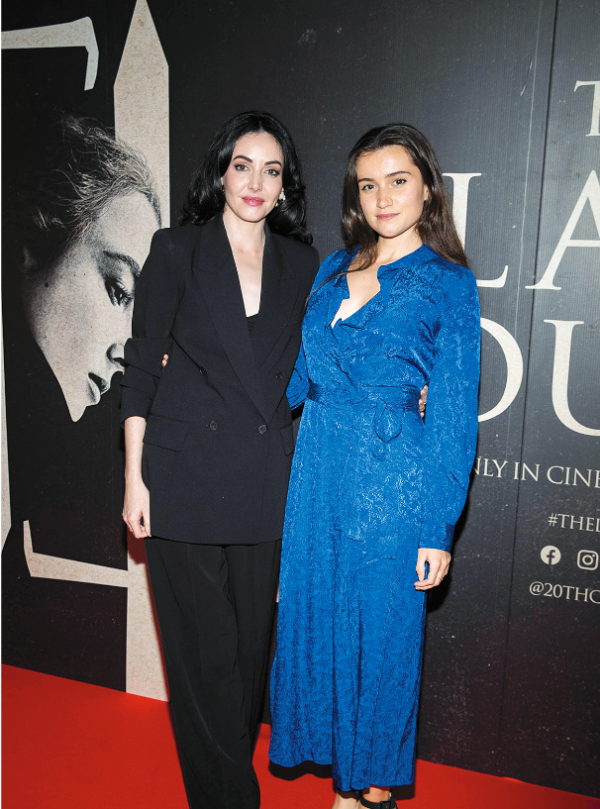
B.J. Quinn
Remember Lockdown #1? Cast your mind back to a time of soda bread recipes, viral sea shanties, insufferable Zoom quizzes and, yes, Matt Damon. The Hollywood superstar and his family were holed up in Dalkey while the actor shot outdoor scenes for Ridley Scott’s The Last Duel. During his stay, Damon became something of a cult hero – signing autographs, enjoying local amenities and providing us with top-notch “bag of cans” meme fodder that should last us through any future lockdowns.
Speaking via video link at the Dalkey Book Festival last June, the actor told host David McWilliams, “We made a bargain with the kids that when this all ends we’re going back and we’re gonna do our trip . . . we all really want to do it, we just felt comfortable there . . . the town is so beautiful and we’re just walking up Killiney Hill, walking over to Mugs (a local café) and getting coffee.”
Thankfully, his trip to these shores wasn’t made in vain. The Last Duel, one of two films Scott directed last year (the other being House of Gucci), is a thoroughly modern medieval epic, forceful as it is propulsive.
Set in Paris, 1386, Damon plays Jean de Carrouges, one of two noblemen about to take part in the final duel ever sanctioned by French royalty. His opponent, Jacques Le Gris (Adam Driver) stands accused of raping de Carrouges’ wife, Marguerite (Jodie Comer in a starmaking turn). The film, however, uses a cunning narrative device: the story is split up into three chapters, each from one of the main characters’ point of view. We see how their lives intertwine and how their individual experiences contrast and compare in the lead up to the film’s climactic, bloodthirsty duel.
When the trailer for The Last Duel dropped last July, my expectations were lukewarm to say the least. It built the film up to be a sober, long-winded tale, chock-full of Shakespearean prose and solemn expressions. Thankfully, that’s not the case at all. Ridley Scott has somehow delivered a close to three hour period drama that rips and roars along from start to finish. But be warned: the violence on display is both bloody and brutal. And you won’t need to wait till the film’s confrontation to enjoy it; the early battle sequences are spectacularly gruesome and liable to shock even the most stone-faced viewer.
Another shocking revelation is that the film’s script marks the first time Ben Affleck (who also co-stars as Count Pierre d’Alençon) and Matt Damon have collaborated since their 1997 Oscar darling, Good Will Hunting. Nicole Holofcener – who previously co-wrote the 2018 hidden-gem Can You Ever Forgive Me? – is also on script duties; and hers is a voice desperately needed. The screenplay’s parallel contradictory narratives will inevitably prompt comparisons with Akira Kurosawa’s classic Rashomon. However, it seems what’s grabbing most audiences’ attention is the film’s use of rape as a plot device. Yes, there are, indeed, some traumatic moments in The Last Duel, but these are treated with care and sensitivity.
Perhaps most concerning, though, is the film’s characterisation of Comer’s Marguerite, who throughout the movie is given no interior life and instead is defined by the mechanics of the plot and the rape. We hear powerful characters often describe women as the property of men, but with a script portraying women as nothing but shallow victims, does The Last Duel think any differently?
The film may feed into the very power structure it tries to overthrow, but at least Comer is trying her best here, offering a poignant, understated performance. It’s meant to be her story, of course, but it’s easy to tell Scott is much more interested in the film’s reserve of testosterone. Some of that is supplied by Damon, who enjoys playing the heroic yet repugnant de Carrouges. Affleck spices up things with a peroxide mullet more suited to a Danish rave than 14th century France. The part of d’Alençon provides Affleck the chance to go big and camp, and I’m all here for it!
But nothing can compare or distract from Driver’s all-encompassing charisma. He’s proven himself to be a star before – last seen carrying the revamped Star Wars franchise on his broad, carefully sculpted back with ease – but we had yet to see him hold his own among bonafide Hollywood heavyweights, such as Damon and Affleck. He’s a unique talent, and one you can’t help but watch. In that regard, The Last Duel feels like the passing of the Hollywood hunk torch, and long may Driver keep its flame lit.
We all know who the real star of the movie is, though. Ireland has hosted various productions in the past: The Tudors, John Boorman’s Excalibur and, most recently, The Green Knight (starring Dublin native Barry Keoghan). But if you’re still not convinced of Ireland’s medieval credentials, then The Last Duel is here to settle all debate. The film was partially shot in Cahir Castle, Tipperary, Bective Abbey, County Meath and various locations in Dublin and Wicklow. So, the next time you feel like directing your own sprawling historical epic about masculinity and betrayal, forget Hollywood – look no further than your own back garden.
The Last Duel (153 mins) is currently playing on Disney +
*Support for victims of sexual violence is available from Dublin Rape Crisis Centre’s 24-hour helpline, 1800-778888; Men’s Aid Ireland national confidential helpline, 01-5543811; and An Garda, 999/112.
Image: Pictured at a special preview screening of Twentieth Century Studio’s The Last Duel in the Light house Cinema Dublin are Irish cast members Caoimhe O’Malley who plays Elizabeth and Simone Collins who plays Agatha. Picture Andres Poveda



